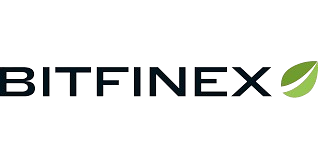Summary
The status of cryptocurrency trading in Sudan remains unclear due to limited regulatory framework. While crypto trading is not explicitly illegal, there is no official recognition from the Central Bank of Sudan. The Sudanese Pound (SDG) has limited support on international crypto exchanges. Bank transfers and credit cards are the primary payment methods, though P2P trading is gaining popularity. Mobile money services provide additional options for crypto transactions. When selecting from the best crypto exchanges in Sudan, consider these top platforms:
- Binance – Extensive trading features with 350+ cryptocurrencies and advanced security protocols
- OKX – Advanced trading platform with competitive fees and institutional-grade infrastructure
- Bybit – User-friendly interface with strong security measures and dedicated customer support
- Bitfinex – Professional trading tools, deep liquidity, and margin trading options
- BingX – Innovative social trading features and copy trading capabilities
Best Crypto Exchanges in Sudan
Cryptocurrency trading in Sudan presents unique challenges and opportunities for investors. While the country’s financial infrastructure is developing, international crypto exchanges provide access to digital asset markets. The Sudanese Pound (SDG) has limited direct trading pairs, leading many traders to use USD or stable coins as intermediary currencies.
1. Binance
2. OKX
3. Bybit
4. Bitfinex
5. BingX
Is Crypto Legal and Regulated in Sudan?
The legal status of cryptocurrency in Sudan exists in a regulatory grey area. The Central Bank of Sudan has not issued specific regulations governing cryptocurrency trading or ownership. The absence of clear regulatory framework means that while cryptocurrency trading is not explicitly illegal, it operates without official oversight or protection.
The country’s primary financial regulator, the Banking Regulation Authority, has not established guidelines for cryptocurrency exchanges or service providers. Financial institutions in Sudan generally maintain a cautious approach toward cryptocurrency transactions, limiting direct banking relationships with crypto service providers.
The Ministry of Finance and Economic Planning has not integrated digital assets into the national financial system. This regulatory uncertainty affects how international exchanges operate in the Sudanese market, particularly regarding fiat currency transactions and compliance requirements.
Recent economic reforms and modernization efforts may lead to future cryptocurrency regulations, but the timeline remains uncertain. The focus remains on traditional financial sector development and stability measures.
Is Crypto Taxable in Sudan?
Sudan’s tax framework for cryptocurrency remains undefined. The Sudan Tax Chamber has not issued specific guidelines for cryptocurrency taxation. Traditional capital gains tax rates in Sudan range from 2% to 15%, but their application to cryptocurrency gains remains unclear.
Current tax regulations focus on conventional financial instruments and do not explicitly address digital assets. The Income Tax Act may potentially apply to cryptocurrency gains, but implementation details are not specified.
Disclaimer:
Tax laws are subject to change, and individual circumstances may vary. It is strongly advised to consult with a qualified tax professional or financial advisor for personalized guidance on cryptocurrency taxation in Sudan.
How to Buy Crypto in Sudan
Purchasing cryptocurrency in Sudan requires careful consideration of available platforms and payment methods. Binance offers the most comprehensive service for Sudanese traders, supporting multiple payment options and providing a reliable trading infrastructure.
- Choose a Cryptocurrency Exchange: Assess platforms by looking at accepted payment methods, transaction fees, and security features. Confirm KYC requirements and ensure they align with local regulations.
- Register for an Account: Set up your account and complete the identity verification process through KYC. Typically, you will need to provide a government-issued ID and proof of your residence.
- Add Funds to Your Account: Deposit money via bank transfers or credit card payments. Additionally, P2P trading platforms can offer more local currency transaction options.
- Select Your Cryptocurrencies: Pick from well-known assets like Bitcoin (BTC), Ethereum (ETH), or stablecoins such as USDT. Keep market conditions and your investment objectives in mind.
- Execute Your Trades: Submit market or limit orders according to your trading plan. Keep an eye on exchange rates and timing to ensure optimal execution.
- Ensure Secure Storage: Move your acquired assets to a secure wallet for long-term protection and safe storage.
Best Crypto Wallets in Sudan
Choosing the right cryptocurrency wallet is essential for safely storing assets in Sudan. Hardware wallets offer the highest level of security for long-term storage.
Ledger and Trezor provide top-notch hardware security solutions. For mobile users, Trust Wallet strikes a good balance between security and convenience. Exodus offers an intuitive desktop experience, while MetaMask is tailored for accessing DeFi platforms.
When choosing a wallet, take into account supported cryptocurrencies, backup options, and compatibility with exchanges. It’s vital to have multi-currency support and consistent security updates to safeguard your digital assets.
Bottom Line
For traders seeking the best crypto exchanges in Sudan, Binance stands out with its comprehensive trading features, competitive fees, and robust security measures. OKX provides an excellent alternative with advanced trading tools and deep liquidity pools. Both platforms offer reliable solutions for accessing the cryptocurrency market in Sudan, with strong security features and diverse trading options.







